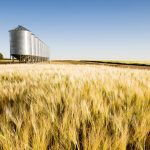
Comment

Comment: The fertilizer import tariff has to go, Minister Freeland
Tariffs add to the cost of doing business in farming and contribute to food price increases

Comment: Gauging the real bird flu risk
U.K. poultry can roam free outside again, but bird flu risk hasn’t gone away

Comment: The short, unhappy history of carbon sequestration
The carbon credit market is far from the golden solution often portrayed

Comment: Lessons learned from spider guts
Spider stomach contents can sharpen our understanding of their role in agricultural pest control

Comment: Go for the carrot, not the stick
Regulations not the best move for real ecological progress

Comment: Australia-China barley solution shows diplomacy does work
Australia’s WTO case has been suspended with the promise of a Chinese tariff review

Comment: Giving Canadians the ‘right to repair’
This would empower consumers, support competition and benefit the environment

Comment: Read the room
Galen Weston raise falls flat in time of austerity at grocery till

Comment: Right to repair still an issue
This fight between farmers and machinery giants is just getting started

Comment: Sleep driving
Should tired drivers be treated like drunk drivers?


